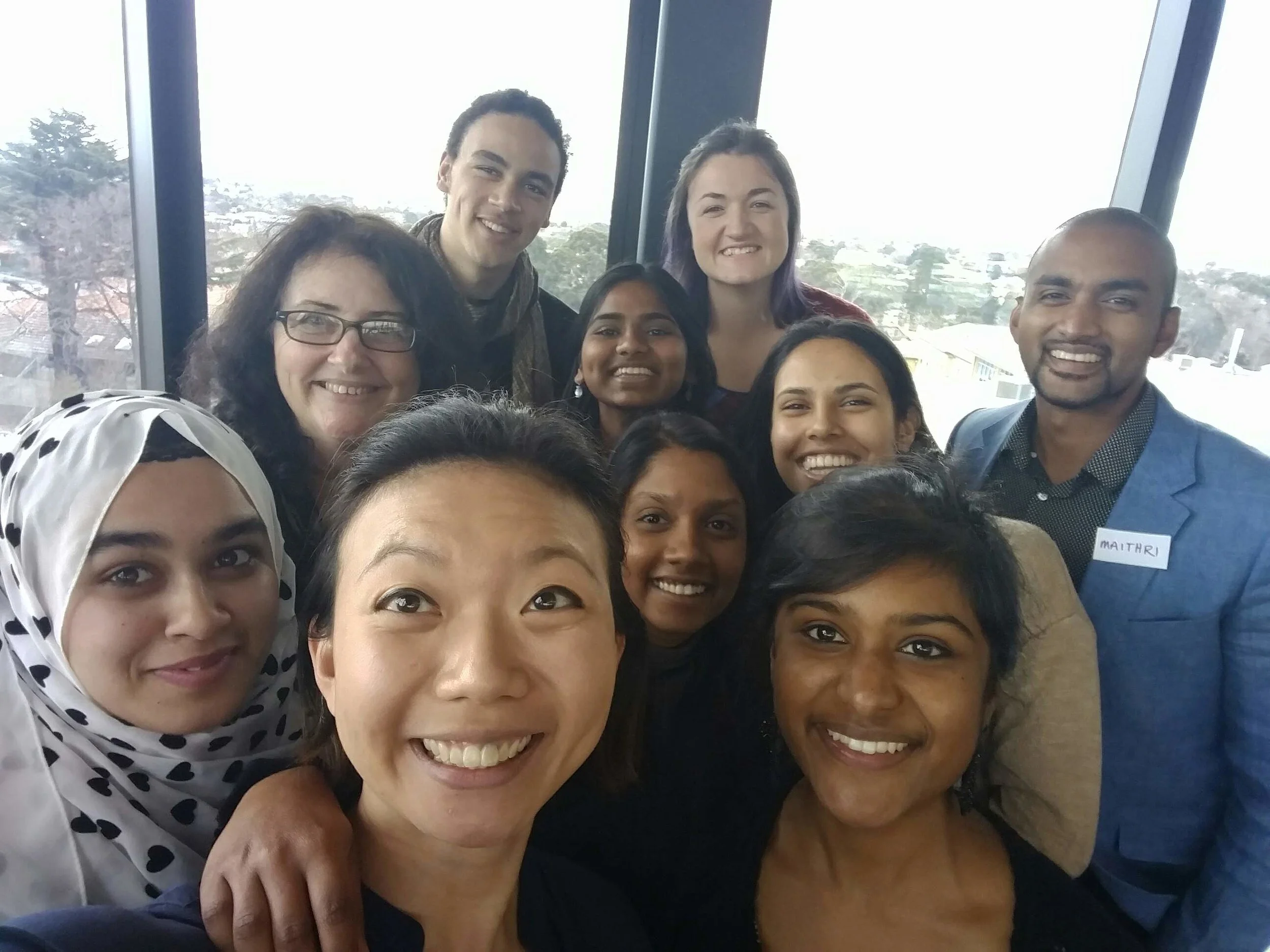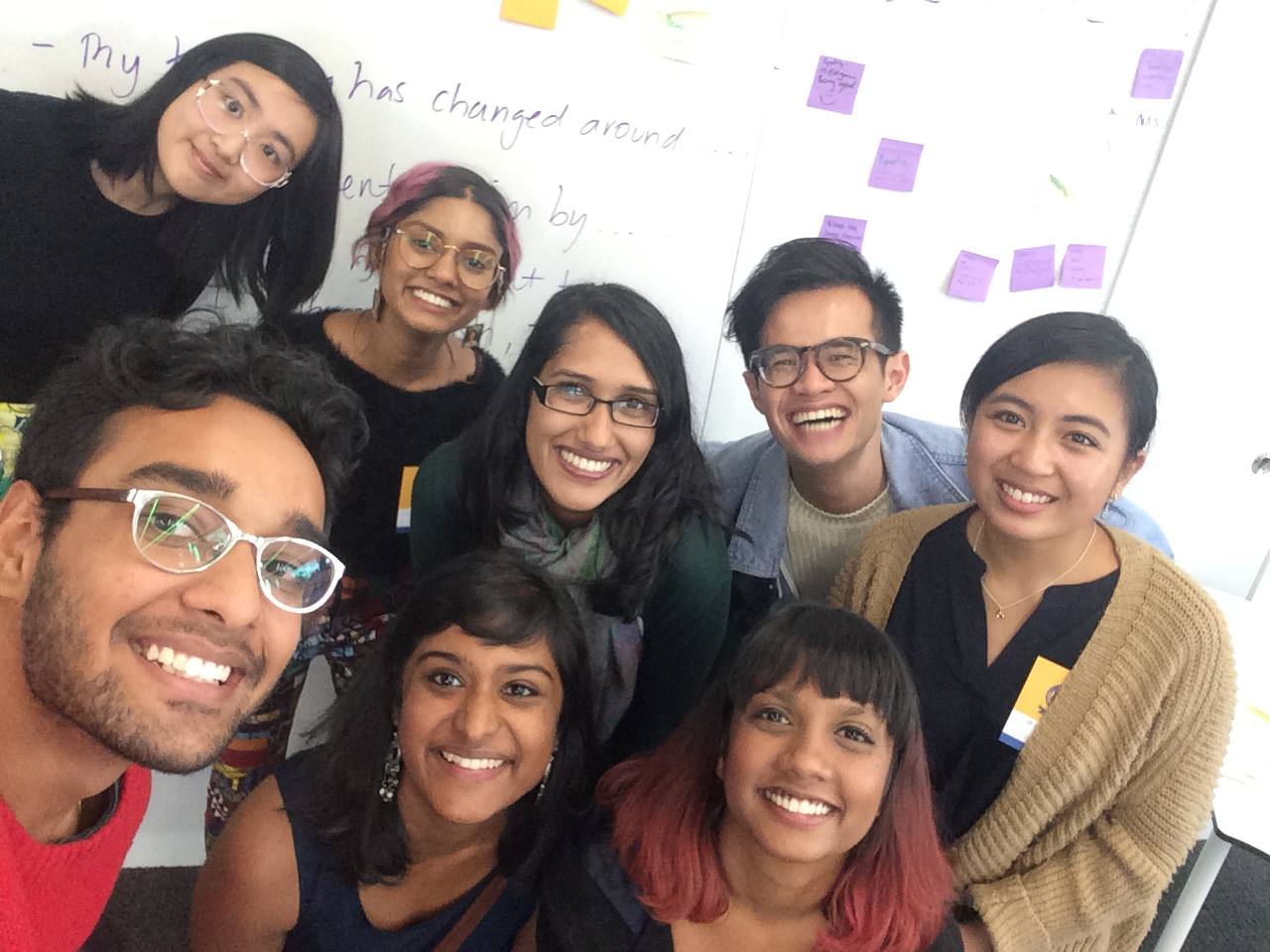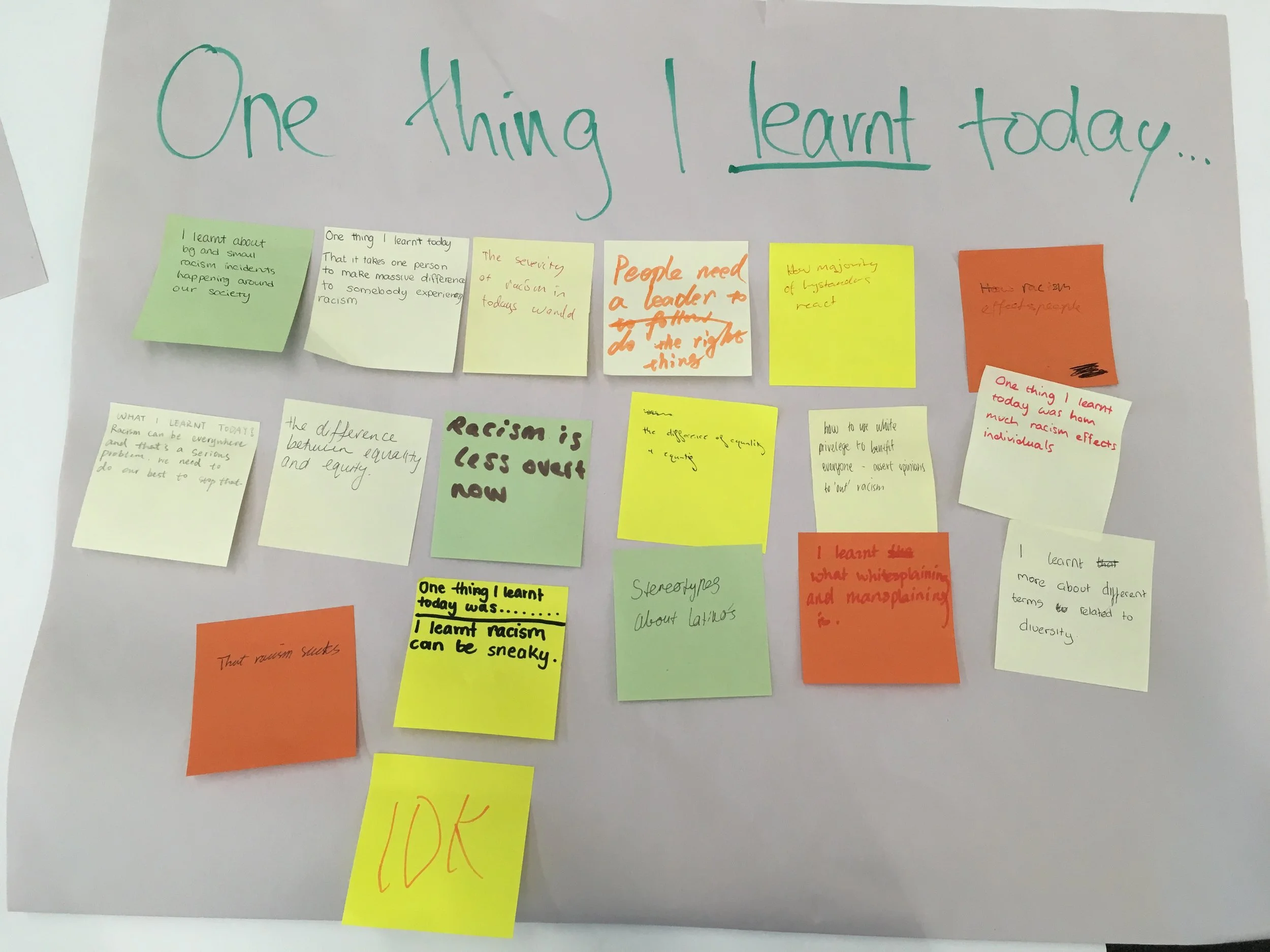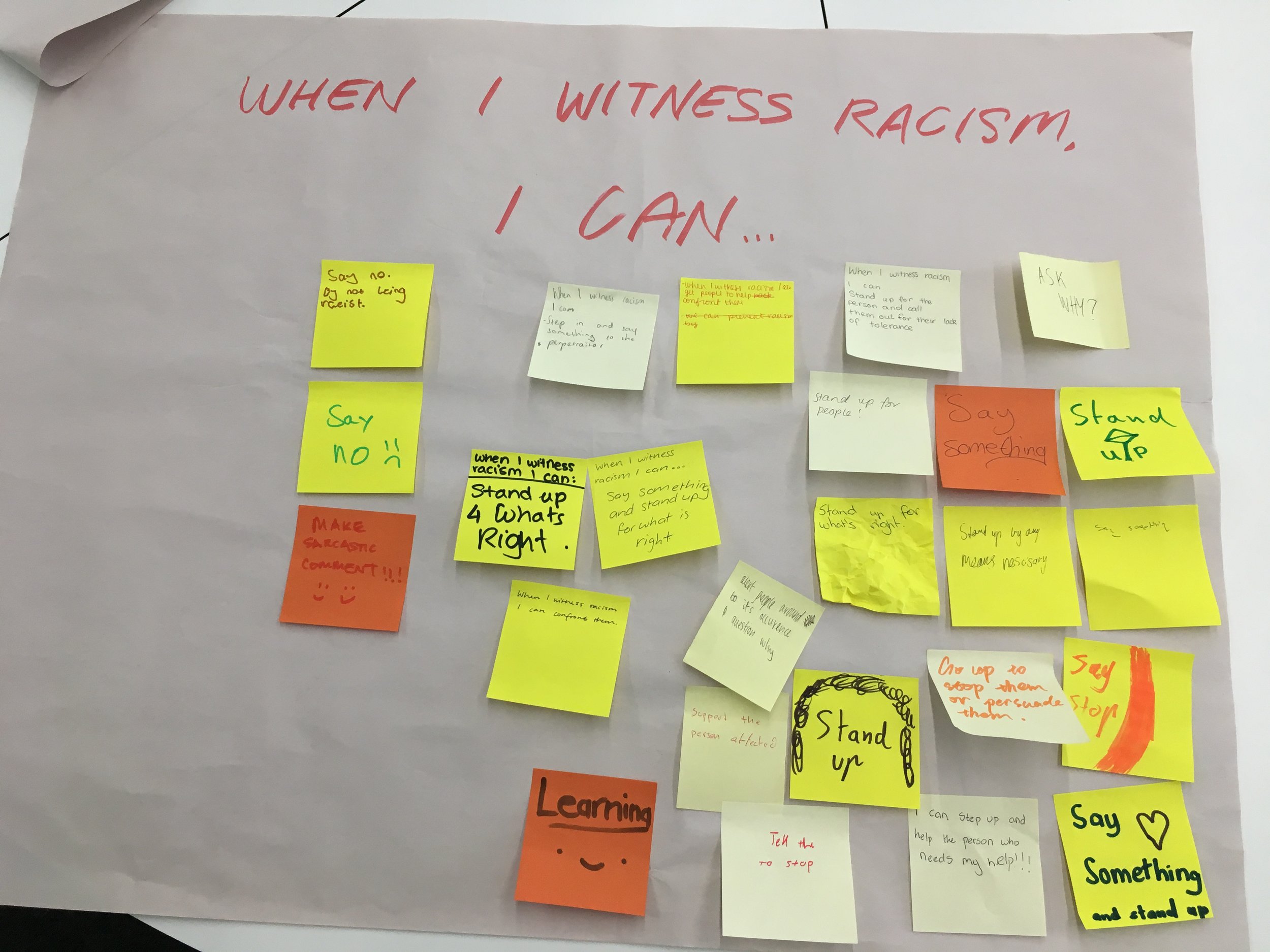Diversity Program: For schools
The Possible Dreams Diversity program aims to stimulate open discussion and reflection around diversity, racism and inclusion through interactive, engaging workshops for Year 9 or 10 students. At the core of the Possible Dreams Diversity Program is the belief that every young person has the right to learn in a safe, respectful environment that values diversity.
From 2016-2018, our facilitators have run several student and staff workshops, with at least 100 in attendance at each workshop.
The program, led by young people of colour, aims to:
▪ encourage students to reflect on their own implicit biases and attitudes
▪ foster empathy and a greater understanding of the lived experience of racism and discrimination
▪ equip students of colour with the language to articulate their experiences
▪ equip all students with the language and skills to identify and respond to racism
▪ create safer spaces in schools.
Feedback from staff:
“I just wanted to say a very big thank-you for organising the discussion/workshop that
was held this afternoon. It was an insightful and privileged opportunity to hear the
stories of people like Maithri and his peers that so very often remain unheard for a
myriad of reasons. I do hope that today was just the catalyst for ongoing discourse
amongst staff and students within this domain of diversity. If anything does come up
again or there is room for staff involvement or input I would be very interested in being
involved if that was a possibility. Once again I appreciate that a lot of work would have been involved in organising the discussion and panel members involved so thank-you.”
“Thank you for the diversity workshop yesterday. The meaningful panel discussions were thought-provoking and helped remind me how important my role as a teacher is in helping make change in the world. Our break-out session was outstanding as well."
Feedback from students:
- “Diversity sessions were the most powerful of all three workshops [during enrichment week].”
- “This changed the way I view the world.”
- “So powerful to hear from people who are brave enough to talk about personal experiences.”
- “I had never heard of white privilege. I am seeing the world with new eyes, noticing things I did not understand before.”
- “[It] makes me want to talk to my parents about some issues I see in the news.”
- “The links to gender discussions I have had made me understand more about different types of disadvantage.”
- “I will see media reports differently now.”
- “The group discussion around ‘black face’ really explored this topic. Some people argued that history is in the past and we should move on, while others argued for reconciliation and recognition of how damaging a history of oppression has been. Personally, I think that we learn from our past to improve the future.”
- “We are very lucky to live in a diverse country where we can openly have these conversations and learn from each other.”
More information:
Student workshops run for 3.5 - 4 hours.
The structure is as follows:
- Panel discussion with facilitators of colour recounting their experiences and strategies to create safer, inclusive spaces in schools
- 4 – 6 stations led by facilitators on current topics e.g. privilege, blackface and cultural appropriation, bullying, racism in sport, citizenship testing, and shopping while black
- Short debrief & reflection
Workshops can be adjusted to each school’s schedule.
Facilitators are trained to foster discussion, and to avoid didactic lectures. Stations include games, activities and short videos.
Our workshop with teachers aim to challenge them to think about the ways they may be subconsciously reinforcing exclusionary practices and equip them to challenge structural barriers to inclusion.
In recognition of the impact of our work, the program won the 2016 Monash University Vice-Chancellor Diversity and Inclusion Awards. Our team also recently presented the workshop to an engaged audience at the March 2017 Victorian Transcultural Mental Health Seminar.
To discuss bringing this program to your school, or becoming a facilitator, please get in touch!
Email hello@possibledreams.org



